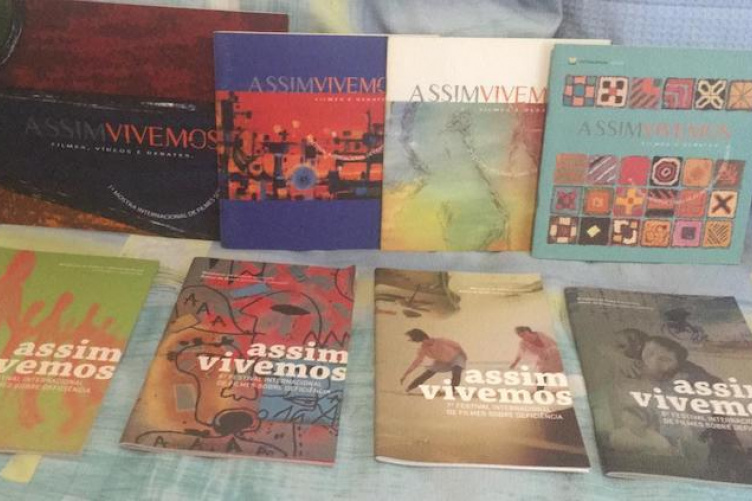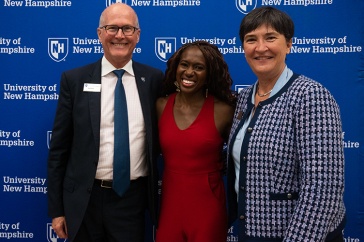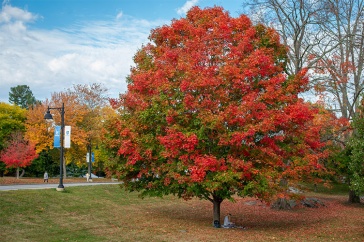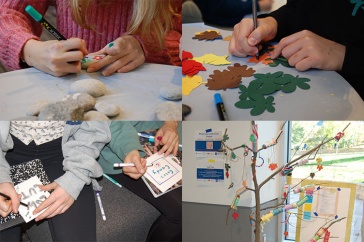
Lara Valentina Pozzobon da Costa will be watching at least 600 films during the first part of her summer break – and she’s inviting other graduate students to join her.

Pozzobon da Costa owns her own production company and is currently earning a master’s in early childhood education: special needs at UNH. She was a graduate assistant at the on-campus Community Literacy Center for the 2018-19 academic year, and she is also the founder of Brazil’s International Disability Film Festival. She will watch all the film submissions and select approximately 30 that will be featured in two-week screening segments in three Brazilian cities in the fall. The film festival will also include panels.
Pozzobon da Costa, who is from Brazil and already has a master’s and Ph.D. in comparative literature, first got the idea about the film festival when her partner and now-husband wrote a screenplay for a short film in which the main character was a girl who was blind. Pozzobon da Costa’s sister, who had graduated in theater, played the protagonist, and the film was “unexpectedly very successful.” The film was featured at professional festivals in Brazil and a large one in Germany that focused on people with disabilities. She created a similar, smaller festival in Brazil, and the response has been overwhelmingly positive.
“They feel transformed,” she explained, adding that the people truly enjoy their experiences and are eager to keep watching films; they also often return to the festival each year to learn more.
The film festival takes place every two years, and usually there are about 150 submissions. This year, near the end of the submission deadline, there are approximately 600 entries, with films coming from the United Kingdom, Canada, Italy, Greece, Egypt, Armenia, and many other countries.
Pozzobon da Costa started screening the films at the end of May and finished around June 10. All graduate students were invited to join her on a drop-in basis.
“This is an opportunity for people to see how curators select films for film festivals and also to be immersed in the subjects and issues of people with disabilities from all around the world,” she said.
Though there weren't any formal discussions, she asked for viewer feedback. Down the line, she would like UNH to offer a screening for the festival’s top three films.
-
Written By:
Kristen Melamed | Graduate Admissions



















































